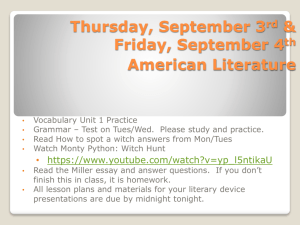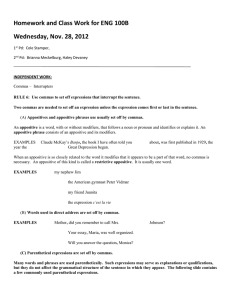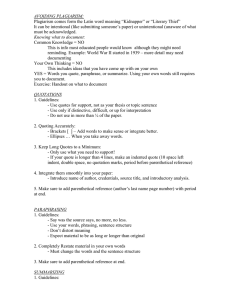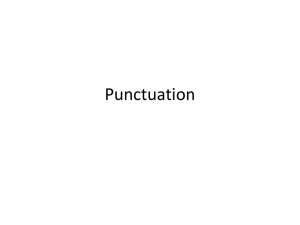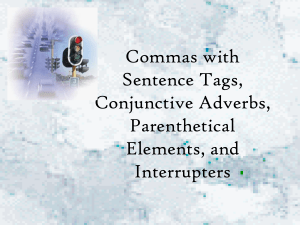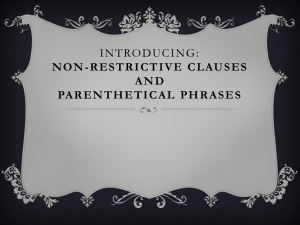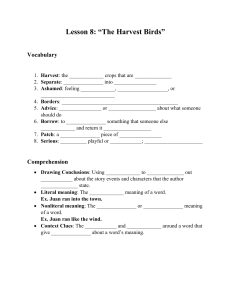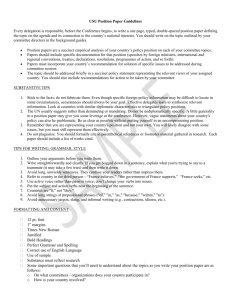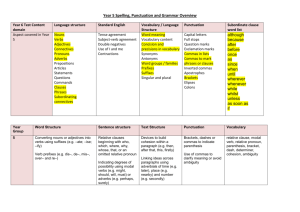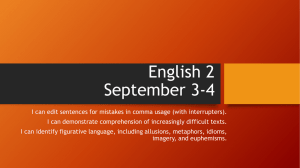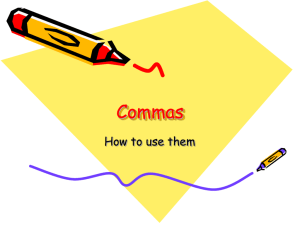Punctuation: Use Commas with Parenthetical Expressions
advertisement
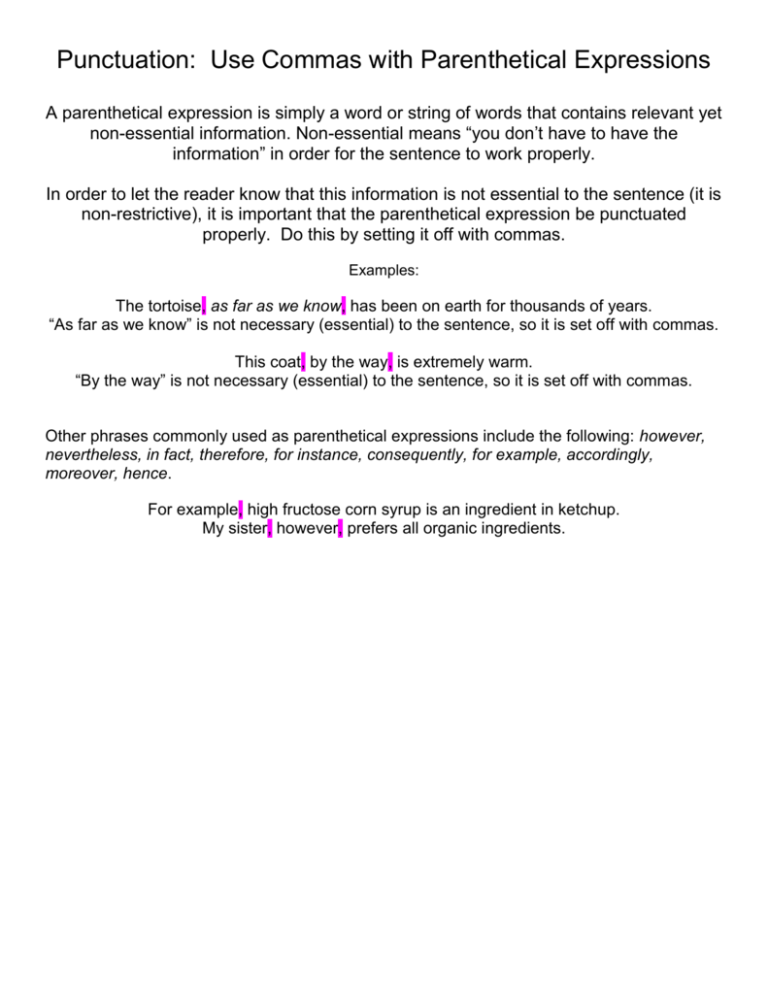
Punctuation: Use Commas with Parenthetical Expressions A parenthetical expression is simply a word or string of words that contains relevant yet non-essential information. Non-essential means “you don’t have to have the information” in order for the sentence to work properly. In order to let the reader know that this information is not essential to the sentence (it is non-restrictive), it is important that the parenthetical expression be punctuated properly. Do this by setting it off with commas. Examples: The tortoise, as far as we know, has been on earth for thousands of years. “As far as we know” is not necessary (essential) to the sentence, so it is set off with commas. This coat, by the way, is extremely warm. “By the way” is not necessary (essential) to the sentence, so it is set off with commas. Other phrases commonly used as parenthetical expressions include the following: however, nevertheless, in fact, therefore, for instance, consequently, for example, accordingly, moreover, hence. For example, high fructose corn syrup is an ingredient in ketchup. My sister, however, prefers all organic ingredients.
